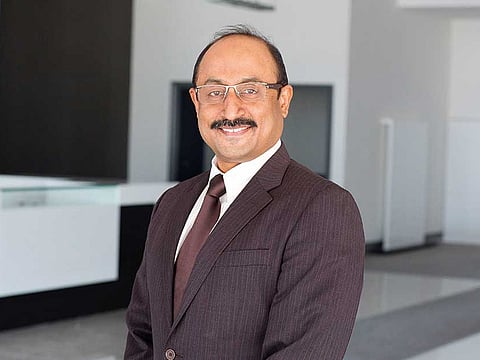Move to battery power presents challenge for UAE
In-car AC cuts down mileage by half, and runs even while vehicle is stationary

Dubai: The shift towards alternative fuel is gaining steam and the Chinese are today leaders in propelling the alternate energy vehicles — electric, fuel cells and hybrid vehicles, according to Ajit Kumar, Chief Operating Officer of Al Naboodah Group.
“So keeping that in mind we are already testing several different options with our principals. In the last couple of exhibitions we have shown electric vehicles for the Maxus and have now been testing an electric bus for the last 12 months in the UAE with good results. We realise there is a drive in the direction of alternate fuel and we intend to be a leader in that field. We will take a very strong position with alternate fuel.”
Matt Lei, deputy managing director at SAIC, echoed similar sentiments during the media interaction at the company’s Research and Development Centre in Shanghai. He said that the automobile industry is undergoing dynamic changes.
“No one can guarantee what is the ultimate direction. We are trying different technologies [battery, fuel cell and hybrid] to figure out what is the path for us,” he added. However, he could not specify how the batteries will be recycled or disposed of without endangering the environment.
Ajit Kumar, however, felt there is a convergence towards battery, which he believes is the way of the future.
“Most world leaders are focused on creating the electric car of the future and the industry is following suit. We have already had some brands launch electric cars here quite successfully. All the major global brands have announced that they will not be investing any more in IC (internal combustion) engines. Some are looking at the fuel cell and others are looking at battery. We have to see how this develops. But now the battery-powered electric car is dominating the fuel technology of the future.”
It could be the way forward for the rest of the world, but in the UAE the situation is different, especially in tough summer months.
“In the UAE, because we do not have a manufacturing base here, we are trying to see who are the best partners to work with because once the whole automotive market has moved towards electric, the entire automotive distribution business will change. The number of parts will come down, maintenance will come down.
“All of us have to adapt to that kind of future. Fuel stations might become battery-charging stations, this is where things are going once the battery life starts increasing. This is the challenge for us in the region as the air conditioning usage cuts down the achievable mileage by half. Even when stationary the vehicle still requires power for air conditioning. In other countries the vehicle can be cut off at traffic lights, but that is not an option in this region.”
The UAE is pushing government-owned entities to have alternate fuel vehicles, which has created a sudden rush and focus on alternate fuels in the UAE.
“Even though we are a hydrocarbon-rich nation, we are still looking to the future. Which means the government is very clearly committed to alternate energy vehicles. Between 10 to 20 per cent of government vehicles are believed to have been converted to alternate fuels. So we think this will happen within the next five years. During the next purchasing phase we can expect to see more alternate energy buses on our roads.”



